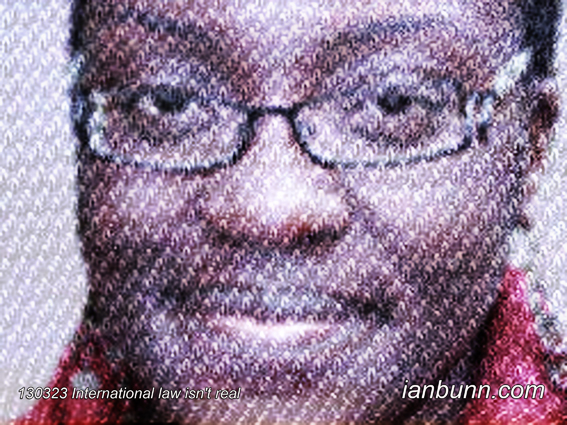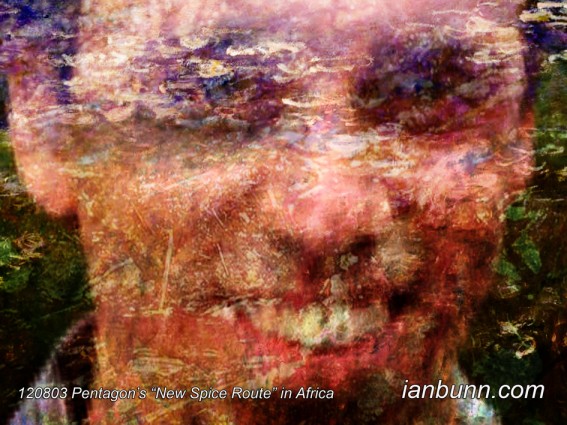 International law isn’t real (March 23 2013)
International law isn’t real (March 23 2013)
Nanjala Nyabola the Kenyan writer and political analyst, is currently a graduate student focusing on the socio-political dimensions of conflict in Africa has published an article on Aljazeera titled ‘International law isn’t real’ in which she states “Although there is a pseudo-consensus on what the law ‘is’, it is in fact simply a consensus among elites. It’s one of the most common refrains you hear, especially in an American law school, as to why the US has no reason to abide by or participate in international conventions or nascent legal institutions like the international criminal court. The unspoken philosophical implications are: that there is such a thing as “real” law, and that domestic law has somehow achieved that gold standard. After almost two years of grasping the essence of this “realness”, swimming upstream against the glib acceptance that Law is, I find myself concluding that there is no such thing as “real” law. Domestic law is no more real than international law and if we allow one, the empty comfort of ascribed “realness”, we should be able to extend this comfort to the other. “Real” law is the necessary fiction that consequences must flow from the actions of one against each other, and that the Law as defined by those in power or with money, determines both the infraction and its consequences; yet another tool that those in power have to employ against the powerless. They are able to do this, because even at the most prestigious centres for legal learning and thought, few grapple the meta-question that underpins the entire exercise: namely, what is law? …The onus is on law schools and practitioners to think creatively about how elite consensus on this issue can be created. Ultimately, it comes down to two things: either change the minds of the elite, or change the elite. That is a call to anarchy.”
Inspired by Nanjala Nyabola, Aljazeera ow.ly/iqTxa Image source The Guardian ow.ly/iqTmD

![Elisabeth Rosenthal the American medical doctor specializing in epidemic disease, scientific and environmental matters has published an article in the New York Times titled ‘As Biofuel Demand Grows, So Do Guatemala’s Hunger Pangs’. Rosenthal states “In the tiny tortillerias of this city [Guatemala City], people complain ceaselessly about the high price of corn. Just three years ago, one quetzal — about 15 cents — bought eight tortillas; today it buys only four. And eggs have tripled in price because chickens eat corn feed. …Recent laws in the United States and Europe that mandate the increasing use of biofuel in cars have had far-flung ripple effects, economists say, as land once devoted to growing food for humans is now sometimes more profitably used for churning out vehicle fuel. In a globalized world, the expansion of the biofuels industry has contributed to spikes in food prices and a shortage of land for food-based agriculture in poor corners of Asia, Africa and Latin America because the raw material is grown wherever it is cheapest. …With its corn-based diet and proximity to the United States, Central America has long been vulnerable to economic riptides related to the United States’ corn policy. Now that the United States is using 40 percent of its crop to make biofuel, it is not surprising that tortilla prices have doubled in Guatemala, which imports nearly half of its corn. At the same time, Guatemala’s lush land, owned by a handful of families, has proved ideal for producing raw materials for biofuels. Suchitepéquez Province, a major corn-producing region five years ago, is now carpeted with sugar cane and African palm. …Roughly 50 percent of the nation’s children are chronically malnourished, the fourth-highest rate in the world, according to the United Nations.” Inspired by Elisabeth Rosenthal, New York Times ow.ly/gKkg3 Image source Twitter ow.ly/gKkeF](http://www.ianbunn.com/wp-content/uploads/2013/01/130117dcU60.jpg)


